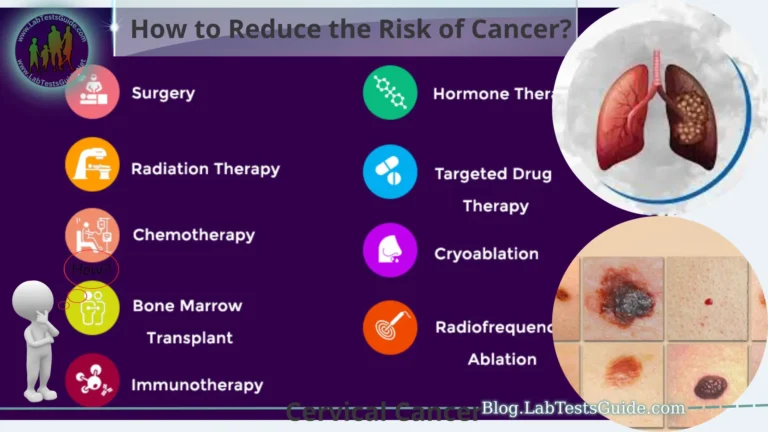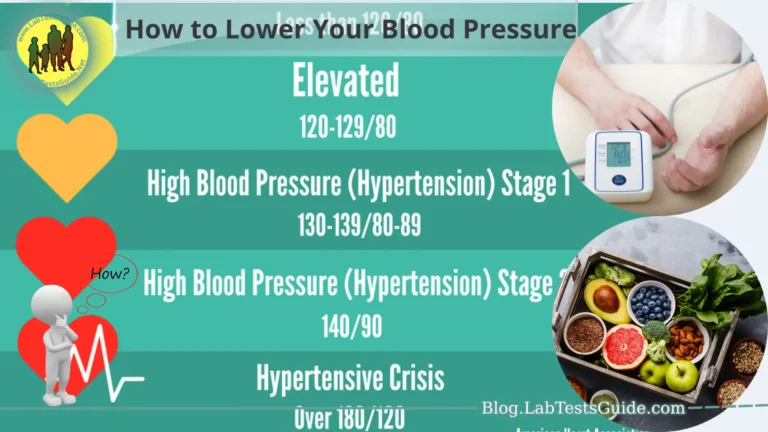Managing chronic health conditions can be challenging, particularly for girls who may face unique experiences and circumstances. This section provides an overview of chronic health conditions, highlights the specific challenges faced by girls, and emphasizes the importance of effectively managing these conditions.

Definition of Chronic Health Conditions:
- Explanation of chronic health conditions: Conditions that persist over an extended period, typically lasting for three months or more.
- Examples of chronic health conditions: Asthma, diabetes, epilepsy, autoimmune disorders, mental health conditions, etc.
Challenges Faced by Girls with Chronic Health Conditions:
- Physical and emotional impacts: Dealing with symptoms, pain, fatigue, and limitations.
- Body image and self-esteem: Coping with physical changes, medical interventions, and societal expectations.
- Social and peer interactions: Managing social activities, friendships, and potential stigmatization.
- Educational and academic demands: Balancing schoolwork, attendance, and accommodations.
- Transitioning to adulthood: Preparing for independent living, career choices, and long-term healthcare needs.
Importance of Managing Chronic Health Conditions:
- Enhancing quality of life: Effective management can reduce symptoms, improve overall health, and increase well-being.
- Preventing complications: Proper treatment and self-care practices can minimize long-term health risks.
- Empowering self-advocacy: Developing skills to navigate healthcare systems, communicate needs, and make informed decisions.
- Promoting resilience and coping: Building emotional strength and adapting to the challenges associated with chronic conditions.
By understanding the unique challenges and focusing on effective management strategies, girls with chronic health conditions can lead fulfilling lives and actively participate in their personal, academic, and social pursuits.
Building a Support Network:
This section explores various sources of support and highlights their significance in managing your condition effectively.
Family Support:
- The role of family members in providing emotional support and understanding.
- Collaborating with family to manage treatment plans, medication schedules, and doctor’s appointments.
- Encouraging open communication and discussing any challenges or concerns.
Friends and Peers
- Cultivating friendships with peers who are understanding and supportive.
- Educating close friends about your condition to foster empathy and encourage assistance when needed.
- Participating in activities and social events together, while ensuring you have the necessary accommodations and support.
Healthcare Professionals:
- Developing a strong relationship with healthcare providers, such as doctors, nurses, and specialists.
- Seeking regular medical check-ups and discussing any changes or concerns about your condition.
- Asking questions, seeking clarification, and actively participating in treatment decisions.
Support Groups and Online Communities:
- Joining local support groups or online communities dedicated to individuals with similar chronic health conditions.
- Sharing experiences, tips, and coping strategies with others who understand your challenges.
- Gaining emotional support, practical advice, and a sense of belonging from those who have gone through similar experiences.
Building a support network not only provides practical assistance but also creates a sense of belonging and emotional well-being. Remember to reach out to trusted individuals, professionals, and communities to build a strong support system that can help you navigate the ups and downs of managing your chronic health condition.
Educating Yourself:
Here are some important aspects to consider when educating yourself:
Understanding Your Condition
- Gather information about your specific chronic health condition, its causes, symptoms, and potential complications.
- Consult reliable sources such as reputable websites, medical literature, and trusted healthcare professionals.
- Seek clarification from your healthcare provider regarding any aspects of your condition that you find confusing or unclear.
Learning about Treatment Options:
- Familiarize yourself with available treatment options for your condition, including medication, therapies, lifestyle changes, and alternative approaches.
- Discuss the pros and cons of different treatment options with your healthcare provider to determine the most suitable approach for your situation.
- Stay informed about advancements in treatment and emerging therapies through reputable sources and medical updates.
Staying Updated with Research and Developments:
- Keep yourself informed about the latest research, studies, and breakthroughs related to your chronic health condition.
- Subscribe to reliable medical journals, newsletters, or websites that provide updates in your field of interest.
- Participate in patient advocacy organizations or support groups that provide resources and information about ongoing research and clinical trials.
By actively educating yourself about your condition, treatment options, and the latest advancements, you become an informed and empowered participant in your healthcare journey. This knowledge equips you with the tools to collaborate with your healthcare team, ask relevant questions, and make decisions that align with your goals and well-being.
Developing Self-Care Practices:
Here are some important aspects to consider when developing self-care practices:
Prioritizing Physical Health:
- Establish a regular exercise routine suitable for your condition, with guidance from your healthcare provider.
- Maintain a balanced and nutritious diet to support your overall health and manage any specific dietary requirements related to your condition.
- Get sufficient sleep and practice good sleep hygiene to optimize your body’s ability to heal and function properly.
Managing Medications and Treatment Plans:
- Adhere to prescribed medication schedules and follow treatment plans recommended by your healthcare provider.
- Keep track of your medications, including any potential side effects or interactions, and communicate any concerns to your healthcare team.
- Attend regular medical check-ups and follow-up appointments to monitor the effectiveness of your treatment and make necessary adjustments.
Incorporating Healthy Lifestyle Choices:
- Reduce stress through relaxation techniques such as meditation, deep breathing exercises, or engaging in hobbies and activities you enjoy.
- Limit exposure to environmental triggers or allergens that may worsen your condition.
- Avoid unhealthy habits such as smoking, excessive alcohol consumption, or illicit drug use, as they can negatively impact your condition.
Monitoring Symptoms and Tracking Progress:
- Keep a symptom diary to track patterns, triggers, and fluctuations in your condition.
- Learn to recognize early warning signs of worsening symptoms and take proactive measures to manage them.
- Communicate any changes or concerns about your symptoms to your healthcare provider for appropriate guidance.
Remember that self-care is a continuous process and may require adjustments over time. It is important to listen to your body, communicate openly with your healthcare team, and make self-care practices a priority in your daily life. Taking care of yourself physically and mentally can greatly contribute to managing your chronic health condition and promoting overall well-being.
Emotional Well-being:
Here are some key aspects to consider for maintaining your emotional well-being:
Addressing Mental Health Needs:
- Recognize and acknowledge the emotional impact of living with a chronic health condition.
- Seek professional help from therapists, psychologists, or counselors specializing in chronic illness or mental health if you experience significant distress or mood disturbances.
- Participate in therapy or counseling sessions to develop coping mechanisms, resilience, and a positive mindset.
Coping with Stress and Anxiety:
- Practice stress management techniques such as deep breathing exercises, mindfulness, or meditation to reduce anxiety and promote relaxation.
- Engage in activities that bring you joy, relaxation, and a sense of purpose.
- Establish healthy boundaries to manage stress and prioritize self-care.
Seeking Professional Help if Needed:
- Do not hesitate to reach out to mental health professionals if you need additional support in managing emotional challenges associated with your condition.
- Discuss your mental health concerns openly with your healthcare provider, who can provide appropriate referrals and guidance.
Expressing Emotions and Seeking Support:
- Find healthy ways to express your emotions, such as through journaling, art, music, or talking to trusted friends, family members, or support groups.
- Seek support from peers who may be going through similar experiences or from online communities dedicated to individuals with chronic health conditions.
- Consider joining support groups or participating in counseling programs specifically designed for individuals with chronic illnesses.
Remember that your emotional well-being is as important as your physical health. Taking care of your mental health and seeking support when needed can positively impact your overall well-being and ability to manage your chronic health condition effectively.
Navigating School and Social Life:
Here are some considerations for managing your condition while maintaining a fulfilling school and social life:
Communicating with Teachers and School Staff:
- Inform your teachers and relevant school staff about your condition, providing them with necessary information, such as symptoms, treatment plans, and any accommodations you may require.
- Establish a communication channel with your teachers to discuss any specific needs or concerns related to your condition.
- Work together with your school’s support services to develop an individualized education plan (IEP) or a 504 plan, if necessary, to ensure appropriate accommodations and support are in place.
Managing Schoolwork and Accommodations:
- Prioritize your time and energy, balancing schoolwork with self-care needs.
- Advocate for accommodations, such as extended deadlines, flexible attendance policies, or modified assignments, when needed.
- Utilize assistive technologies or adaptive equipment that can support your learning and academic performance.
Participating in Extracurricular Activities:
- Choose extracurricular activities that align with your interests and abilities, while considering the impact on your health.
- Communicate with activity organizers or coaches about your condition, potential limitations, and necessary accommodations.
- Explore alternative activities or adapt existing ones to ensure your active participation.
Maintaining Social Connections:
- Foster open and honest communication with your friends about your condition, helping them understand your needs and limitations.
- Plan social activities that are conducive to your well-being, considering your energy levels and any specific requirements.
- Seek out supportive and inclusive social circles, such as clubs, organizations, or online communities, where you can connect with others who share similar experiences.
Remember to advocate for yourself, communicate your needs, and seek support when necessary. Balancing your educational and social commitments with your health is key to managing your chronic condition while still enjoying a fulfilling school and social life.
Advocating for Yourself:
Here are some important aspects to consider when advocating for yourself:
Understanding Your Rights:
- Familiarize yourself with the laws, regulations, and policies that protect individuals with chronic health conditions, both at the school and broader societal level.
- Learn about your rights to accommodations, privacy, and equal treatment under disability laws, such as the Americans with Disabilities Act (ADA) or relevant legislation in your country.
Communicating Your Needs:
- Clearly articulate your needs and concerns to your healthcare providers, teachers, school staff, and others involved in your care or education.
- Advocate for the accommodations, support, and resources necessary for you to effectively manage your condition and thrive in your academic and social pursuits.
- Practice effective communication skills, such as being assertive, asking questions, and actively participating in discussions about your health and well-being.
Seeking Accommodations and Support:
- Work with your school’s support services, teachers, and administrators to obtain necessary accommodations and modifications to ensure equal access to education.
- Request support from your healthcare provider in documenting your condition and its impact on your daily life, which can aid in securing accommodations and support.
Being Your Own Advocate:
- Take an active role in your healthcare decisions, asking questions, seeking second opinions when necessary, and understanding the potential risks and benefits of treatment options.
- Keep organized records of your medical history, treatment plans, and relevant documentation to advocate effectively for your needs.
- Stay informed about advancements in treatment, research, and policies related to your condition, empowering yourself with knowledge to make informed choices.
Remember, advocating for yourself is a continuous process. It involves speaking up, educating others about your condition, and seeking the necessary support and accommodations to ensure your well-being. By being your own advocate, you can actively shape your healthcare experiences, educational opportunities, and overall quality of life.
Transitioning to Adulthood:
Here are some important aspects to consider during this transition:
Healthcare Transition:
- Start conversations with your healthcare providers about transitioning from pediatric to adult healthcare services.
- Discuss any changes in treatment plans, medication management, and healthcare needs that may arise as you transition to adult care.
- Ensure a smooth transfer of medical records and information between your pediatric and adult healthcare providers.
Self-Management Skills:
- Develop essential self-management skills to effectively manage your condition independently.
- Learn to schedule and attend medical appointments, refill prescriptions, and manage your treatment plan.
- Understand health insurance and navigate the healthcare system, including the process of finding and transitioning to adult healthcare providers.
Education and Career Planning:
- Explore educational and career paths that align with your interests and abilities while considering the impact of your health condition.
- Communicate with educational institutions or employers about any accommodations or support you may need to thrive in your chosen field.
- Seek guidance from career counselors or vocational rehabilitation services that specialize in supporting individuals with disabilities.
Building a Support Network:
- Cultivate a support network of peers, mentors, and professionals who can provide guidance and support during the transition to adulthood.
- Connect with advocacy organizations or support groups for young adults with chronic health conditions to access resources and share experiences.
Emotional and Social Well-being:
- Pay attention to your emotional well-being during this transitional period, as it can bring about new challenges and adjustments.
- Seek peer support, counseling, or therapy to navigate any emotional or psychological challenges that may arise.
- Engage in social activities and develop healthy relationships to maintain a well-rounded social life.
Remember that transitioning to adulthood is a gradual process, and it’s important to be patient with yourself. Seek support, stay informed, and actively participate in decision-making processes to ensure a successful transition and continued management of your chronic health condition as you embark on this new chapter of your life.
Conclusion:
Managing a chronic health condition as a girl requires a holistic approach that encompasses various aspects of your life. By building a strong support network, educating yourself, developing self-care practices, prioritizing emotional well-being, navigating school and social life, advocating for yourself, and transitioning to adulthood, you can effectively manage your condition and lead a fulfilling life.
Remember that you are not alone in your journey. Reach out to your family, friends, healthcare providers, and support groups for guidance, understanding, and encouragement. Stay informed about your condition, treatment options, and advancements in research to make informed decisions about your health.
Prioritize self-care to maintain your physical and mental well-being. Communicate openly with your teachers, school staff, and peers to ensure necessary accommodations and support in educational settings. Cultivate healthy relationships and engage in activities that bring you joy and fulfillment.
As you transition into adulthood, be proactive in managing your healthcare, developing self-management skills, and planning for your education and career. Advocate for your needs and rights, and actively participate in decision-making processes.
Remember, managing a chronic health condition as a girl may present challenges, but with the right strategies, support, and mindset, you can live a fulfilling life while effectively managing your health. Stay resilient, embrace your strengths, and celebrate your achievements along the way.






